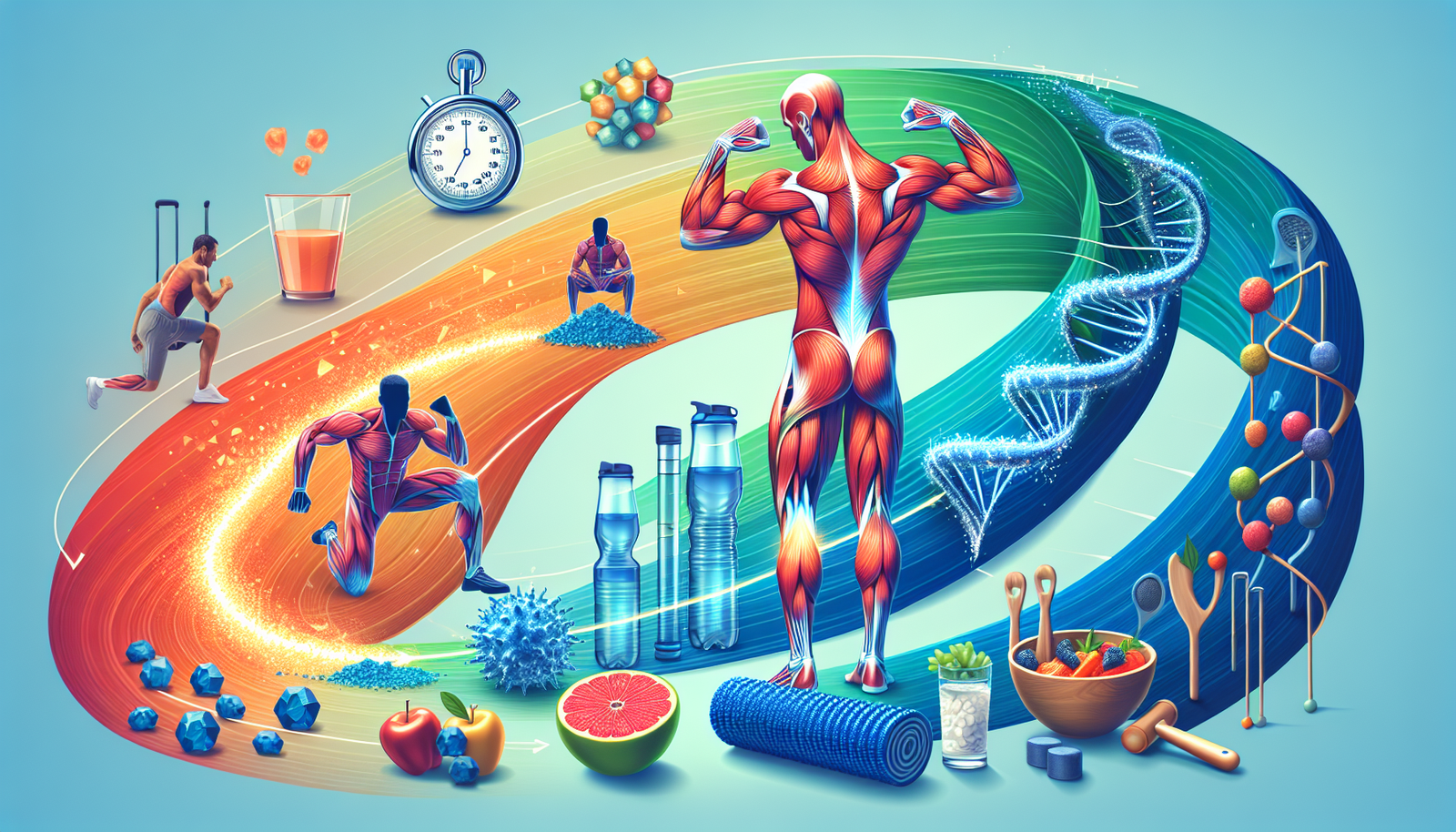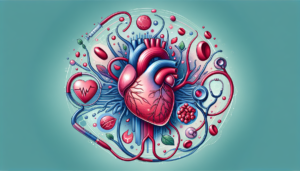The Connection Between Non-GMO Eating and Recovery Time
Understanding Non-GMO Eating and Recovery Time
The rise in health consciousness has encouraged people to explore various dietary choices that may promote better health outcomes and faster recovery from illnesses or physical exertion. One such dietary trend is the adoption of a Non-GMO (genetically modified organisms) diet. This article delves into the relationship between non-GMO eating and recovery time, exploring how such a diet may influence physical recovery, immune function, and overall health.
The Basics of Non-GMO Eating
Non-GMO eating entails avoiding foods that have been genetically modified in a laboratory setting. Genetically modified organisms may be engineered for various traits such as pest resistance, herbicide tolerance, or improved shelf life. Supporters of non-GMO eating argue that consuming naturally grown foods is more beneficial for health, arguing that food grown through traditional methods retains its original nutrients and health benefits.
Nutritional Integrity
One of the foundational claims of non-GMO eating is that such foods maintain a higher level of nutritional integrity. Many believe that genetically modified foods, through their manipulation for traits, can lose essential nutrients and have altered biochemical properties. Nutritional integrity is vital for overall health, as vitamins, minerals, and other nutrients play significant roles in recovery processes.
-
Micronutrients: Non-GMO fruits and vegetables are often touted for higher levels of vitamins and minerals. Nutrients like vitamin C, magnesium, and zinc are essential in bolstering the immune system and aiding in the healing process.
- Antioxidants: Non-GMO foods may have higher antioxidant content, which helps to mitigate oxidative stress incurred through exercise or illness. Antioxidants neutralize harmful free radicals in the body and may speed up recovery times following physical stress.
Impact on Inflammatory Response
Research indicates that diet profoundly affects the body’s inflammatory response. Chronic inflammation can slow recovery times following injury, strenuous workouts, or illness. Non-GMO foods, particularly whole, unprocessed ones, tend to have properties that may help regulate inflammation levels.
Omega Fatty Acids
Non-GMO diets rich in whole, plant-based foods (like nuts, seeds, and legumes) promote omega-3 fatty acids, which are known for their anti-inflammatory properties. Consuming foods with high omega-3 content can significantly enhance recovery following intense physical activity by reducing muscle soreness and improving joint function.
- Bioavailability: Non-GMO foods are often less processed, improving bioavailability. This allows for better absorption of essential fatty acids that fight inflammation.
Whole Foods vs. Processed Foods
Many genetically modified foods are also heavily processed, contributing to inflammation rather than alleviating it. Non-GMO eating emphasizes wholesome, organic foods, which are significantly less likely to provoke inflammatory responses. Whole foods promote optimal gut health, important for a well-functioning immune system, further enhancing recovery.
Gut Health and Immune Function
The connection between gut health and the immune system is profound, making diet an essential component of recovery time. A non-GMO diet often prioritizes fermented foods and fiber-rich fruits and vegetables that support a healthy gut microbiome.
Probiotics and Prebiotics
Among non-GMO foods, sources of probiotics (like yogurt, kefir, and fermented vegetables) can help enhance gut flora. A diverse microbiome can lead to improved immunity, crucial for quicker recovery from illnesses or post-exercise fatigue.
Prebiotics found in non-GMO foods serve as food for probiotics, enhancing their growth and functionality in promoting digestive health and nutrient absorption.
Psychological Aspects of Recovery
Diet is also intertwined with psychological well-being, an often overlooked aspect of the recovery process. Non-GMO foods typically align with slower, more mindful eating practices that can result in greater satisfaction and less anxiety around food choices.
Mindfulness and Stress Reduction
The choice to eat non-GMO can sometimes be linked to ethical considerations or personal values, promoting a sense of control and well-being. Stress can significantly impact recovery time, as heightened stress levels may impair immune functionality and increase inflammation.
Mindful eating fosters a deeper connection to food sources and can enhance mental health, making individuals more resilient during recovery periods.
Endurance and Athletic Performance
For athletes or active individuals, incorporating non-GMO foods may specifically impact performance and recovery times. Non-GMO diets provide clean fuel without the chemical residue sometimes found in genetically modified foods.
Carbohydrate Sources
Carbohydrates are essential for replenishing glycogen stores depleted during exercise. However, the quality of carbohydrates plays a crucial role. Non-GMO whole grains, fruits, and vegetables provide vital nutrients alongside carbohydrates, promoting better recovery.
- Low Glycemic Index: Foods with a lower glycemic index found in non-GMO categories promote sustained energy levels without the crash associated with high-glycemic processed counterparts.
Vitamins and Minerals Essential for Recovery
Some vitamins and minerals play critical roles in recovery processes. Non-GMO foods often provide richer sources of these micronutrients.
Vitamin D and Calcium
A diet rich in non-GMO dairy or fortified plant-based products can ensure adequate intake of calcium and vitamin D, which are essential for bone health and muscle recovery.
- Magnesium: Important for muscle contractions and relaxation, magnesium is frequently found in non-GMO nuts, seeds, and leafy greens, aiding recovery from physical exertion.
B Vitamins
Non-GMO sources of B vitamins (whole grains, legumes, and green leafy vegetables) help metabolize energy efficiently, making vital nutrients available for repair and replenishment during recovery.
The Role of Hydration
Hydration is crucial not just for general health but also for effective recovery. Many individuals fail to consider that not all beverages are created equal. Non-GMO drink options, such as herbal teas, coconut water, and pure fruit juices, provide hydration without added sugars or artificial ingredients.
- Electrolyte Balance: Non-GMO electrolyte drinks can help restore balance after physical exercise, preventing cramping and aiding recovery.
General Health Implications
A non-GMO diet emphasizes holistic health. By avoiding processed, genetically modified foods, individuals may naturally consume better, more nutrient-dense options, leading to improved overall health and subsequently faster recovery times.
Reduced Chemical Exposure
Non-GMO eating can reduce exposure to harmful chemicals, including pesticides and herbicides present in GMO crops. Reducing chemical load on the body can enhance recovery as the liver and other detoxifying organs function more effectively.
Enhancing Lifestyle Choices
Choosing non-GMO foods encourages a lifestyle marked by more conscious dietary choices. Improved eating habits support weight management, cardiovascular health, and metabolic health—all factors that play a role in efficient recovery.
Practical Tips for Adopting a Non-GMO Lifestyle
-
Read Labels: Understanding food labels can help identify non-GMO choices effectively. Look for seals like the Non-GMO Project Verified label.
-
Local and Organic Purchases: Supporting local farmers and purchasing organic produce often ensures non-GMO standards.
-
Meal Planning and Preparation: Planning meals ahead can prevent reliance on convenience foods that may be genetically modified.
-
Educate Yourself: Stay informed on the latest research surrounding GMOs and nutrition. Websites, journals, and community discussions can provide valuable resources.
-
Focus on Whole Foods: Prioritize whole grains, fruits, vegetables, nuts, and seeds while reducing dependency on processed foods.
-
Stay Hydrated: Ensure hydration, focusing on non-GMO beverages that nourish and reinvigorate the body.
- Listen to Your Body: Pay attention to how your body responds to different foods; everyone’s recovery is nuanced and individual.
The relationship between non-GMO eating and recovery time is multi-dimensional, encompassing nutrition, inflammation response, immune function, psychological well-being, and overall health. A commitment to non-GMO eating can foster a lifestyle conducive to improved recovery and resilience in various aspects of health. By adopting this diet, individuals may not only experience faster recovery times but also enhance their overall quality of life.








